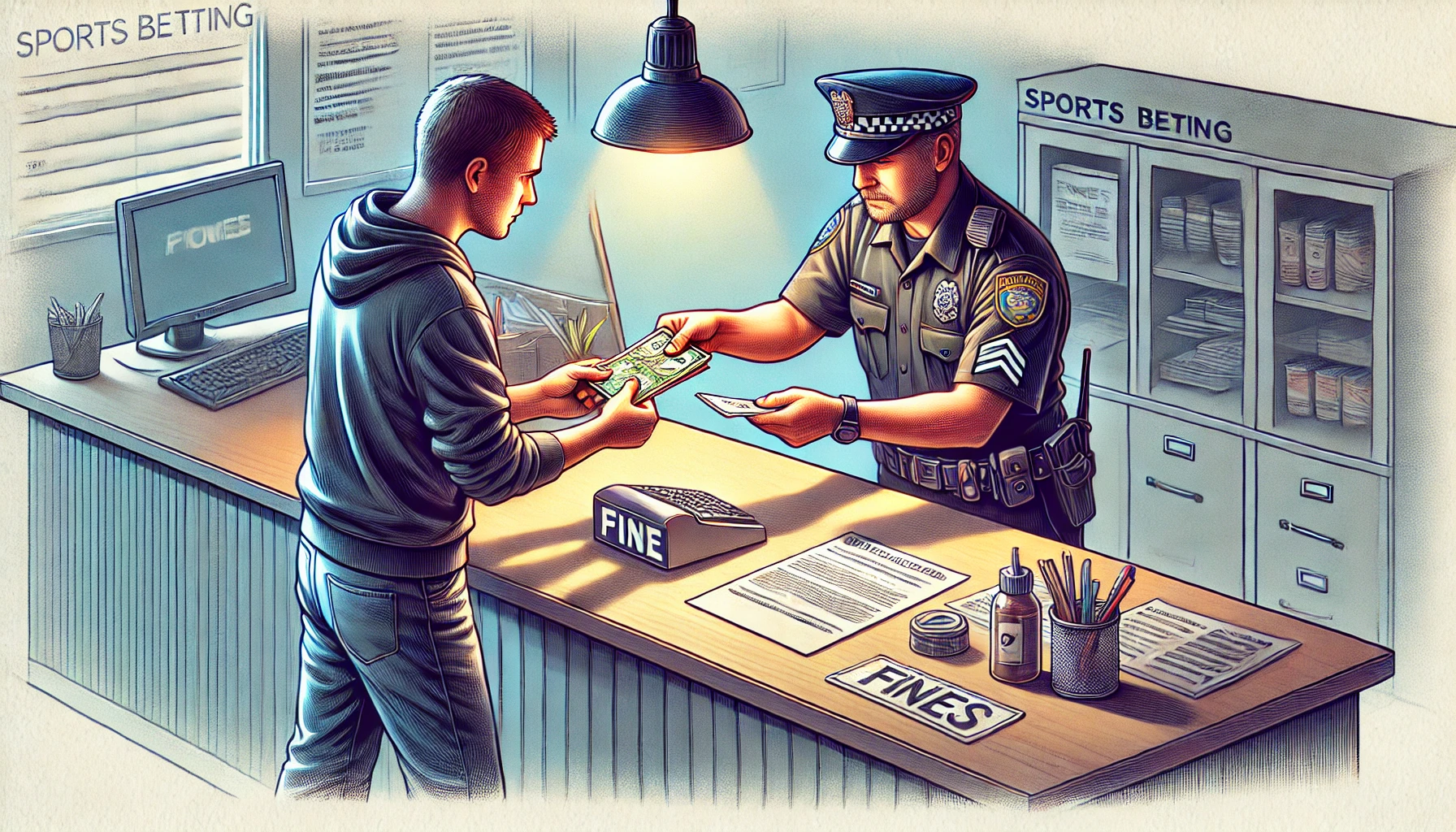Sports betting is entertainment to most, but it becomes a more grey area from the perspective of government and legislature. Bettors, as well as operators, must understand the fines and penalties they could face for engaging in this type of activity. In this post, we call out sports betting fines for the tricky brand compliance issue that they are and look at some legal paperwork you may be filling in to stay on-side.
Legal Framework for Sports Betting
Sports betting is legal in regions to differing extents. Some countries have given a green signal to it under the shed of regulations, meanwhile there are some more ones who still try tighten their grip. Before we can get into the financial side of things, it is important that we first understand the legal framework for sports betting.
Legal Status Worldwide
U.S.: Sports betting is legal in many states and each state has its rules. In 2018, the Supreme Court overturned PASPA (Professional and Amateur Sports Protection Act) which allowed states to legalize on a state level.
Europe: Most of Europe has long had legalized sports betting, with most countries having some forms of regulations in place and varying degrees of oversight.
Asia: Territories including Japan or Hong Kong have regulated sports betting markets while others feature an outright ban.
Africa: The rise of sports betting is leading an increasing number of countries to build regulatory frameworks to support the industry.
Examples of Common Violations and Fines for Those Violations
먹튀검증커뮤니티 violations of sports betting can be committed in individual or organizational ways. Understanding some of the most common violations and their fines can help you to stay in compliance with your city or county regulations.
Individual Violations
Underage Betting: All jurisdictions require those gambling within their borders to be aged 18 years of age.
- Fine: Usually between $100 and $1,000
- Punishment: Criminal charges; banned from betting sites.
Betting with Unlicensed or Illegal Operators: This is strongly advised against and it can result in serious financial penalties.
- Fines: $500 to $10,000
- Penalties: Criminal charges and loss of winnings.
Organizational Violations
Operating Without a License: Running a betting enterprise without the suitable license is a crime.
- Penalties: Typically fines of more than $50,000; some jurisdictions have fine levels up to or exceeding $500,000.
- Penalties: Company shutdown, legal troubles, and potential jail time.
Unreported Winnings: Licensed suppliers are required to report large winnings for tax purposes.
- Fines: Typically $5,000-$50,000 per offense.
- Punishment: Legal action and potential loss of license.
Violation of Advertising Regulations: Advertising in prohibited areas or using deceptive advertising practices can incur fines.
- Fines: $10,000 to $100,000
- Penalties: Forfeiture of profits and additional regulatory scrutiny.
The Role of Regulatory Bodies
Regulators are hugely important in regulating sports betting and enforcing adherence. They are tasked with licensing, inspecting, and fining violators.
Key Regulatory Bodies
- United States: State gaming commissions oversee sports betting regulation and operation.
- United Kingdom: The UK Gambling Commission oversees all gambling including sports betting.
- Australia: Online gambling is regulated by the Australian Communications and Media Authority (ACMA).
- Canada: Provincial authorities oversee sports betting with recent legislation permitting single-event wagering.
Enforcement Mechanisms
To ensure compliance and punish violations, regulatory bodies use various tools such as:
- Inspections and Audits: Regular inspections and financial audits ensure compliance with regulations.
- Tracking Betting Activities: Monitoring odds and betting patterns to detect suspicious activities.
- Fines and Penalties: Imposing penalties to uphold industry integrity and protect consumers.
What Effect Do Fines Have on the Sports Betting Industry?
Fines and penalties incentivize compliance with the rules, maintaining a level playing field for bettors but also affecting the industry broadly.
Positive Impacts
- Improved Compliance: Hefty fines encourage operators to follow regulations, creating a safer betting environment.
- Increased Funding: Fines provide additional funding for regulatory oversight and public welfare.
- Consumer Protection: Third-party regulations protect consumers from fraudulent practices.
Negative Impacts
- Business Closures: Excessive fines can financially burden operators, leading to business closures.
- Market Flux: Inconsistent penalty enforcement can create market instability and deter investment.
- Trust Issues: High-profile penalties can damage consumer trust in the sector.
Strategies to Avoid Fines
Both bettors and operators can take steps to avoid fines from sports betting regulations.
Tips for Bettors
- Use Licensed Operators: Always bet with licensed and regulated operators for a safe experience.
- Know Local Laws: Research local laws to ensure compliance.
- Set Limits: Practice responsible gambling by setting limits on betting activities.
Tips for Operators
- Obtain Proper Licensing: Ensure your operation is fully licensed and compliant.
- Enhance Security: Implement robust security measures to protect data and financial transactions.
- Stay Updated: Keep abreast of legal changes and update practices accordingly.
- Operate Transparently: Maintain transparency in operations and reporting.
Conclusion
Sports betting is a highly regulated industry with numerous fine-print rules. Understanding common violations and their associated fines is crucial for both bettors and operators. By adhering to regulations and maintaining transparency, the industry can thrive while providing a safe and equitable environment for all participants.
